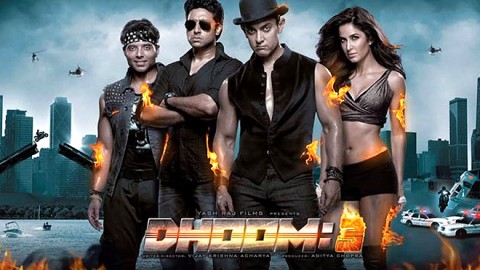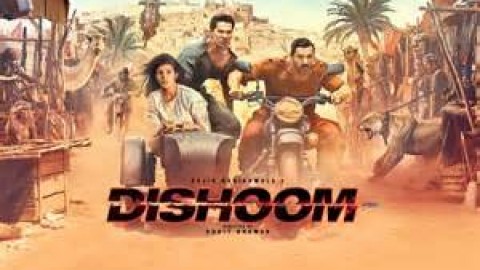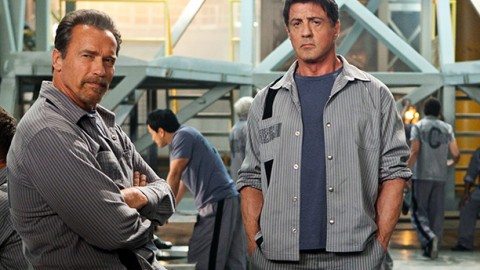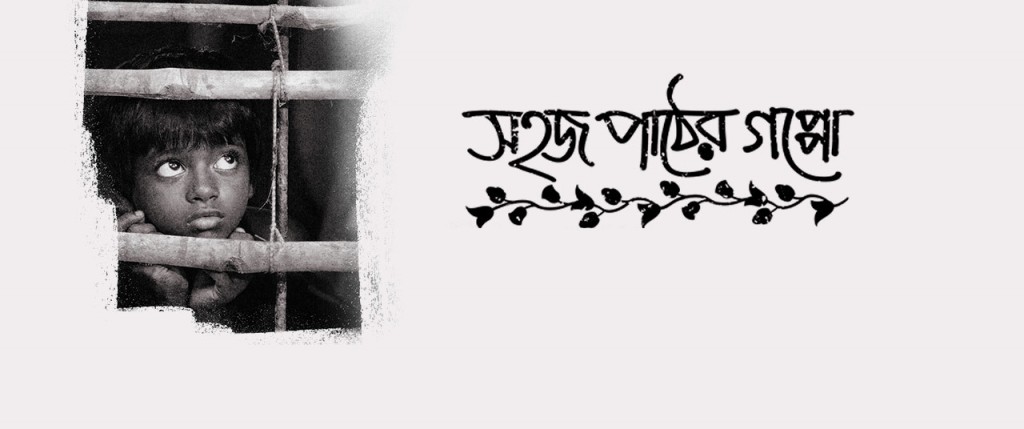 The trailer of ‘Sohoj Pather Goppo’ was a pleasurable watch. Normally, images of rural Bengal remain absent from trailers of films. Trailers tend to become noisy, visually jumbled up affairs. I have always felt that Ritwick Ghatak was an organic director. The way he made films with his own funds & the way he worked with non-actors or shot in villages made him, a genuinely independent and passionate filmmaker the world has ever seen. I am saying all this because ‘Sohoj Pather Goppo’, directed by Manas Mukul Pal, reminded me of those rare gems forged by Ghatak and Ray.
The trailer of ‘Sohoj Pather Goppo’ was a pleasurable watch. Normally, images of rural Bengal remain absent from trailers of films. Trailers tend to become noisy, visually jumbled up affairs. I have always felt that Ritwick Ghatak was an organic director. The way he made films with his own funds & the way he worked with non-actors or shot in villages made him, a genuinely independent and passionate filmmaker the world has ever seen. I am saying all this because ‘Sohoj Pather Goppo’, directed by Manas Mukul Pal, reminded me of those rare gems forged by Ghatak and Ray.
I will request those who are not aware of the story to first watch the film and then read the story. The story revolves around two brothers, Chhotu and Gopal, aged around 6 and 10 years respectively. Their father who used to be a van-puller lies bed-ridden, incapacitated by an accident. The family has practically no income and the mother struggles to run the household. Gopal, realizing that he has to work in order to earn some money, tags Chhotu along with him and begins working. The jobs include cleaning people’s wells and selling “taal” at the local market. Around this time, an affluent Brahmin family organizes a grand festival on the occasion of Janmashtami, the highlight of which is treating the entire village to a feast of “pulao”. Gopal begins to plan of selling “taal” and making some money during the festival, while Chhotu, who has never tasted “pulao” before, dreams of the treat. I will let the film reveal the rest of the plot.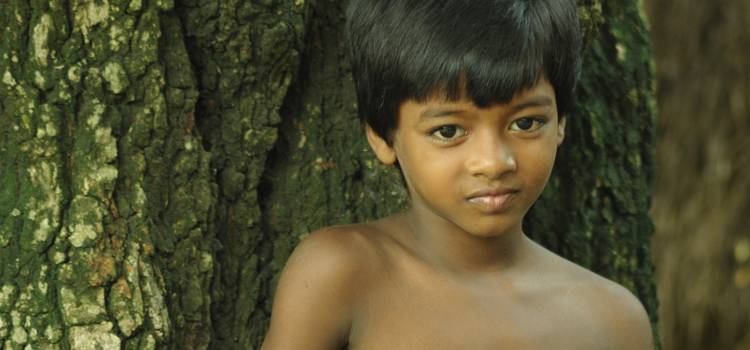
Let it be said quite bluntly that I loved the film. The manner of presenting the narrative is simple and straight-forward, something not very easily achieved by scriptwriters or directors. Generally, during writing or directing (taking shots, selecting frames, planning and executing dialogue, editing, selecting location and costume) personal experiences and philosophies quite understandably seep into the film. But what becomes a problem is that these experiences and philosophies are projected through stilted, bookish dialogue, loud background music and outlandish visuals that might seem arty initially but turn out, upon some consideration, to be rather silly. Such blemishes are absent from ‘Sohoj Pather Goppo’. For the most part, there is nothing forced about what has been said. There is no jugglery of images, no meaningless montages. Shots have been taken with patience and edited with patience in such a manner that no sense of restlessness is betrayed. And yet, the film generates a sense of unrest. It does not allow one to come out of the theatre after watching the film and sit down at a restaurant to plan the next day over a carefree dinner. This is because the ‘Sohoj Pather Goppo’ presents characters, events, sequences and moments that are quite rare in contemporary Bengali films. Most Bengali directors believe that nobody is going to watch a movie about a van-puller’s sorry life and thus, at the very stage of writing, they transform the van-puller into the driver of a Mercedes so that we audience are dazzled by bright lights, good clothes and familiar handsome faces. Such thoughts are completely absent from this film where unknown people have acted. The director and his team deservedly earn a long round of applause for this.
The train sequence is unforgettable with all departments of film making – sound, acting, and screenplay, editing, shot-taking – coming together brilliantly. Without giving too much away, it can be mentioned here this sequence and a few others will unfailingly evoke memories of Ray’s all-time great ‘Pather Panchali’. The sequence has great impact. However, I have issues with the use of dissolve in a scene within the sequence.
Speech plays an important role in the film. The characters use a dialect found in rural North Bengal and it becomes quite clear that the actors have trained long and hard to perfect the dialect. Apart from a few instances of stiffness (which can easily be ignored), dialogue delivery seems effortlessly natural. This film reminds us that there are places in Bengal outside Kolkata, there are dialectical variations, and there are hierarchical relationships between the rich and the poor. The film moves away from the practice of presenting sipping scotch and singing Rabindra Sangeet as major markers of Bengali cultural identity. We see here the matriarch in the Brahmin family keeping things under her benevolent control, even as she herself is controlled by the old man who remains invisible.
The acting deserves special mention. Noor Alam as Chhotu, Samiul Islam as Gopal and Sneha Chowdhury as the mother have been perfectly cast and they all perform wonderfully.
The film, to my mind, is deeply political in its selection of dialect, character, actor and costume as well as in its shot-taking and generally in the method and materials used in the filmmaking process. The conflict between rice and “pulao” carries the film a very long distance.
Dream sequences are significant in the film. There are instances of disruption of continuity. The film has background music which could have been done away with. Instead, sound design could have played a more important role.
Bengal’s local markets, umbrellas, “kolmi saak”, wells, “kirtaan” and “azan” had to be and are present in the film. I can proudly call this film an international film because it is a successful Bengali movie.
My Verdict
My Ratings
4.5
‘Sohoj Pather Goppo’ is a significant addition to the list of legendary Bengali films.


